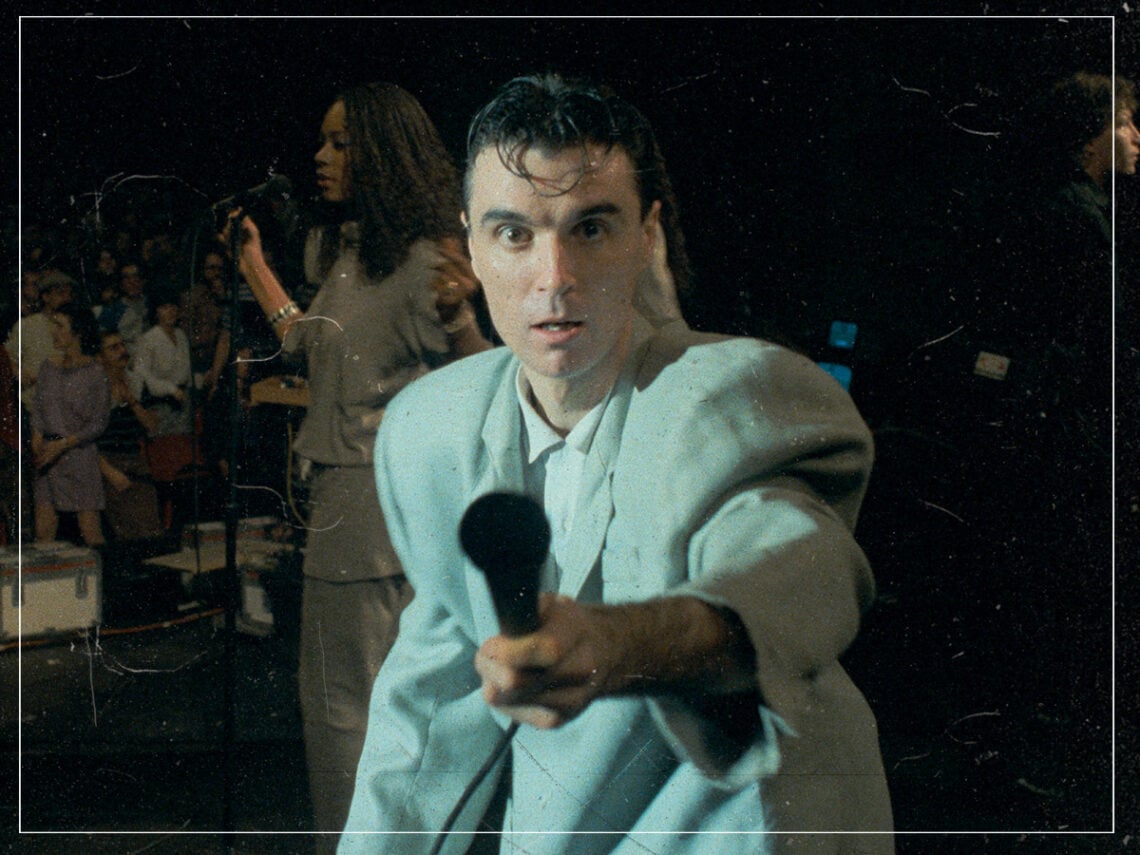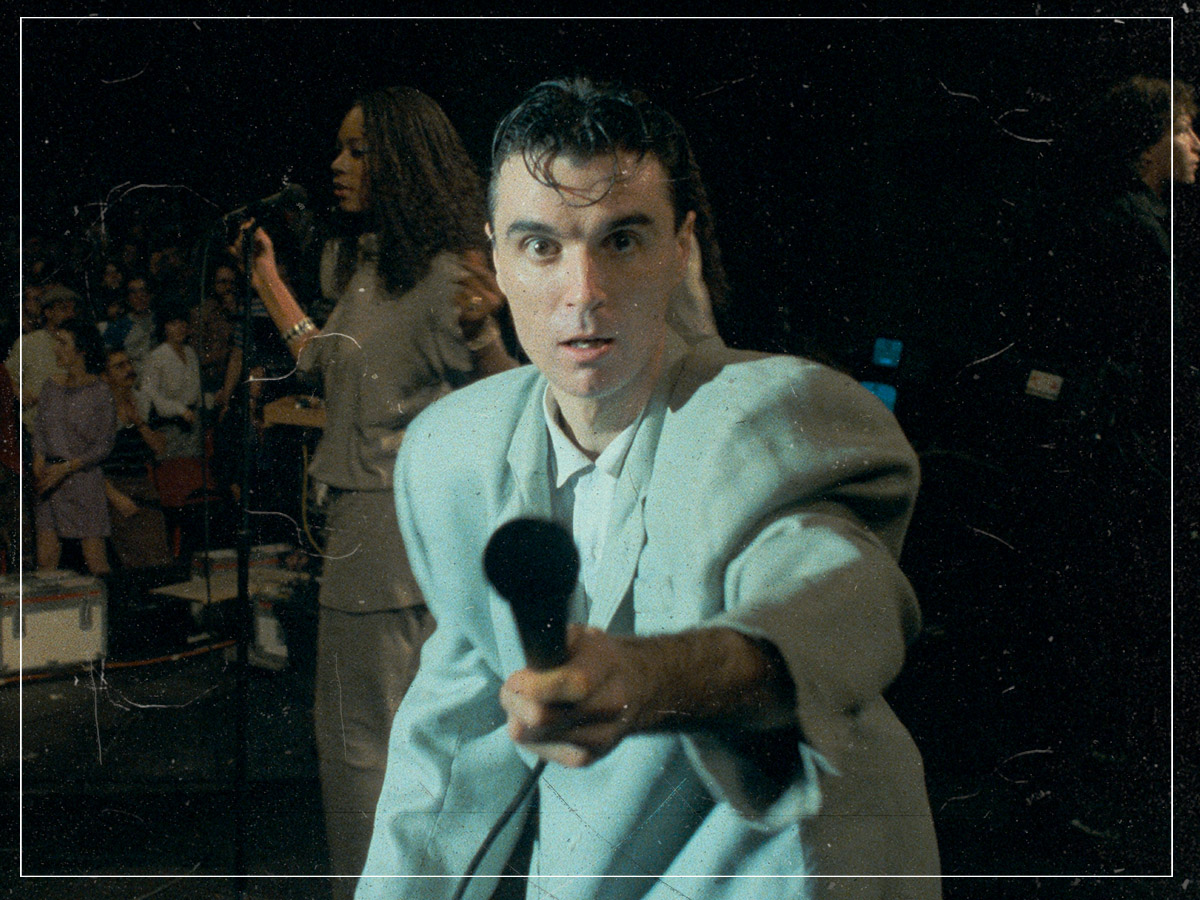
(Credits: Far Out / A24)
Thu 3 July 2025 22:00, UK
Of the late 1970s CBGB cohort who all coalesced around Manhattan’s famous punk club, Blondie would see the sharpest immediate Billboard success, but Talking Heads would endure as the scene’s most critically and commercially successful act.
Jumping from wiry post-punk, psychedelic polyrhythms, skewed funk and leftfield pop across a run of landmark albums, the New York art-punks would dominate the 1980s charts despite internal fractures arising from their difficult and idiosyncratic frontman David Byrne, leading to them dissolving in late 1991.
Yet, Talking Heads’ live shows had petered out long before their break-up. Before the True Stories soundtrack and even the Little Creatures LP, the band played their last gigs in 1984, promoting the Speaking in Tongues album, rounding off their dates in Australia and New Zealand across January and February that year.
Signing up for the latter’s double Sweetwaters Music Festival in both Pukekawa and Christchurch, Talking Heads joined an impressive billing for the day, including Simple Minds, Pretenders, and an upcoming INXS. While their set at Pukekawa’s Festival Farm went smoothly enough, the follow-up show at Christchurch’s Queen Elizabeth II Park was so disastrous it spelt the slow demise of the band.
The setlist itself was a career high point. Yet to be immortalised in Jonathan Demme’s acclaimed Stop Making Sense concert film, the Sweetwaters Christchurch crowd were treated to the tour’s inventive theatrics and memorable props before they’d been popularised, from the austere boombox version of ‘Psycho Killer’, Byrne’s famed oversized suit, plus drummer and bassist couple Chris Frantz and Tina Weymouth joining forces as Tom Tom Club for their sunny ‘Genius of Love’ hit.
Whether simply due to ill-timing or some of the crowd’s pig ignorance, an interlude at Byrne’s behest involving two Māori women taking the stage to explain the controversies behind the Waitangi Day celebrations taking place prompted a barrage of abuse and projectiles from the fatigued audience.
Byrne left the stage at some point in the middle of the set, telling Frantz who’d run after him that he was “sick of playing for people who had their feet in the mud”. Whatever the truth, Talking Heads’ future as a unit was cast in doubt from then on.
“David had a lot of temper tantrums when he got to be a big star,” Weymouth told The Guardian in 2011, “He couldn’t stop it; fame and the whole diva thing was just overwhelming for him”.
Duly obliging to the planned after-party, no amount of booze could hide the bad atmosphere. “It was just this really sad, dismal affair where people got quietly drunk in the corner,” she recollected. “The tour ended not with a bang but a whimper. It was awful that everything we’d been working toward ended like that”.
Talking Heads were still in their creative prime, releasing the mammoth ‘Road to Nowhere‘ and ‘And She Was’ the following year, but Byrne’s increasingly uncompromising creative control would soon squeeze the life out of the band’s former longevity by the 1980s’ close. Friendships soured and the three became estranged from their former frontman, but the one-off gig at their 2002 Rock and Roll Hall of Fame induction and the recent promotion for Stop Making Sense‘s 40th anniversary have teased many a fan’s fantasy for the group’s final stab at a live show to set Sweetwaters’ fateful live finale to rights in the band’s storied lore.
Related Topics
The Far Out Music Newsletter
All the latest music news from the independant voice of culture.
Straight to your inbox.
